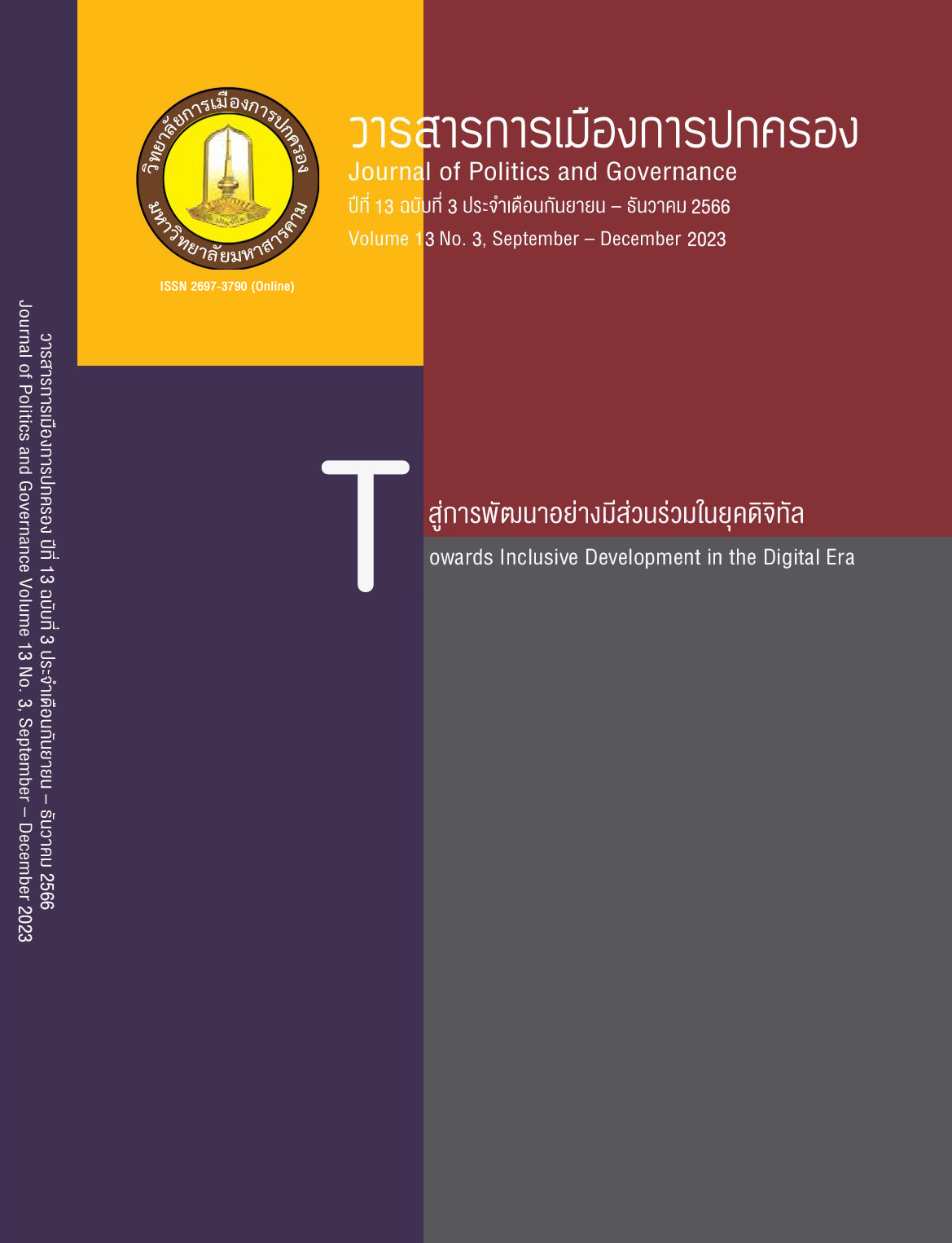Decoding Esan Indigenous Knowledge for Conflict Resolution: The Case Study of a Community in Mahasarakham Province, Thailand
Main Article Content
Abstract
This study aimed to examine the components and their inherent meanings of the process of conflict resolution relying on Esan indigenous knowledge. It used qualitative methods to seek a deeper understanding of this social phenomenon within its natural setting. Volume of data were collected through participant and non-participant observations, and in-dept interviews conducted with twelve key informants selected through stratified purposeful sampling approach due to their experience in and knowledge about conflict and resolution, and diversity in age and gender. Integrating thematic and grounded theory approach of analysis, various themes were emerged. The study revealed that community conflict resolution was the process of community-based and self-management mediation operated as a social tool for attaining the expected goal reconciliation. The process provided flexibility in which decisions made on components of the process, tactics, and dealing with immediate or unexpected events were based on consideration of participants. It comprised two stages including pre-mediation preparation and mediation day. Pre-mediation preparation was a planning stage showing what to be prepared for and how to convince different parties to participate in community mediation. On the mediation day, mediation process was open to all community members. Participants included the key persons verbally invited and the persons participating voluntarily. The essence of the process was associated with resolution skills. To attain the expected goal, each issue connecting with each other within conflict was resolved by supporting and urging the disputants to understand the issue and agree with a resolution. This showed the importance of collaborative persuasion as a tactic for changing belief, emotion, and behavior. Persuasion efforts developed the uniqueness of interventions, dialogues, and languages and meanings.
Article Details

This work is licensed under a Creative Commons Attribution-NonCommercial-NoDerivatives 4.0 International License.
References
จุฑารัตน์ เอื้ออํานวย, 2548. กระบวนการยุติธรรมเชิงสมานฉันท์ : การคืน “อำนาจ” แก่เหยื่ออาชญากรรมและชุมชน. กรุงเทพฯ : เอเชียแปซิฟิค ออฟเซ็ท.
Benjamin, J. J., & Lundy, B. D. (2014). Introduction: Indigeneity and modernity, from conceptual category to strategic juridical identity in the context of conflict. In A. G. Adebayo, J. J. Benjamin & B. D. Lundy (Eds.), Indigenous Conflict Management Strategies: Global Perspectives (pp. 1-12). Lanham, MD: Lexington Books.
Bukari, K. N. (2013). Exploring indigenous approaches to conflict resolution: The case of the Bawku conflict in Ghana. Journal of Sociological Research, 4(2), 86-104.
Creswell, J. W. (1998). Qualitative Inquiry and Research Design: Choosing among five traditions. Thousand Oaks, CA: Sage.
Have, P. ten. (2004). Understanding Qualitative Research and Ethnomethodology. London: SAGE Publications.
Kaufmann, D., Kraay, A., & Mastruzzi, M. (2005). Governance Matters IV: Governance Indicators for 1996-2004. Policy Research Working Paper, No. 3630. World Bank, Washington, DC.
Lundy, B. D., Collette, T. L., & Downs, J. T. (2022). The effectiveness of indigenous conflict management strategies in localized contexts. Cross-Cultural Research, 56(1), 3–28.
Organization for Security and Co-operation in Europe. (n.d.). Mediation and Dialogue Facilitation in the OSCE: Reference guide (pp. 28-30). OSCE.
Osi, C. (2008). Understanding indigenous dispute resolution processes and Western alternative dispute resolution: Cultivation culturally appropriate methods in Lieu of litigation. Cardozo Journal of Conflict Resolution, 10(Fall 2008), 163-231.
Tuso, H. (2016b). Indigenous processes of conflict resolution: Neglected methods of peacemaking by the new field of conflict resolution. In H. Tuso & M. P. Flaherty (eds.), Creating the Third Force: Indigenous Processes of Peacemaking (pp. 27-510). Lanham, MD: Lexington Books.
UN Department of Political and Peacebuilding Affairs. (2020). UN Support to Local Mediation: Challenges and opportunities (pp. 9-16). DPPA, Mediation Support Unit, Policy & Mediation Division.
UNDP, UNICEF, and UN Women, 2013. Informal Justice Systems: Charting a Course for Human Rights-based Engagement. Danish Institute for Human Rights, eds. New York: UNDP, UNICEF and UN Women.
Yin, R. K. (2003). Case Study Research: Design and Methods. (3rd ed.). Thousand Oaks, CA: Sage.


